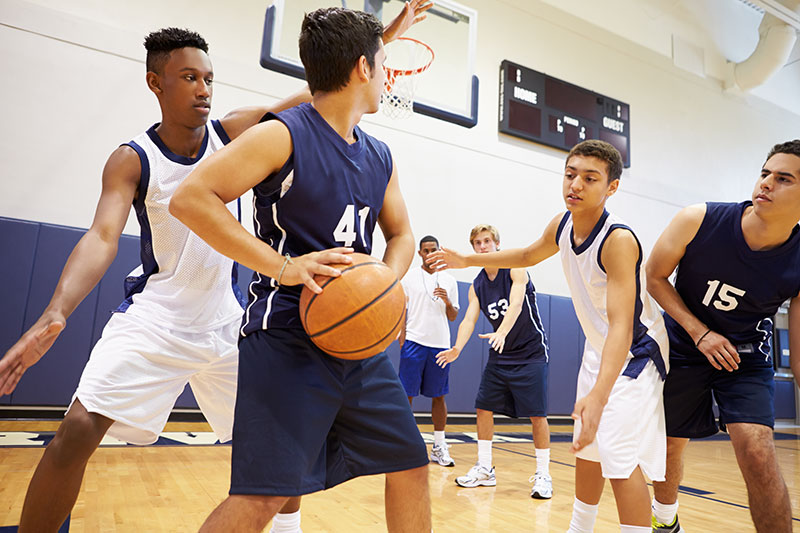What is sports vision training and why does it give a competitive edge?
While visual demands vary between sports, visual tracking, eye-hand coordination, focusing ability, peripheral vision awareness and visual reaction time are skills that apply to nearly every sporting situation. Athletes spend hours training their bodies to perform to their best abilities. Incorporating training of visual skills allows the athlete to process more information in a shorter period of time.
While most training methods focus on getting the athlete from point A to point B the fastest, vision training is about the athlete processing where they need to be and initiating the movement faster.
Successful athletes must be aware of everything going on around them – vision training helps “slow the game down” by helping them see faster, react more quickly, and improve accuracy. Studies have shown that better athletes also have better visual skills compared to lower level athletes or non-athletes.

Common markers indicating a visual-related performance issue:
-Is the athlete making the same mistakes over and over again during competition?
-Does the athlete have difficulty judging ball rotation, location or speed?
-Does the athlete struggle to quickly locate the ball or respond to other players around them?
-Does the athlete frequently lose concentration during sports performance?
-Does the athlete show inconsistent performance on field?
To find out if your vision is limiting your full potential, in addition to your comprehensive eye exam, we perform an in-depth binocular vision exam to test your eye movement accuracy and control. Vision exercises and training techniques may help your eyes achieve their maximum performance.
